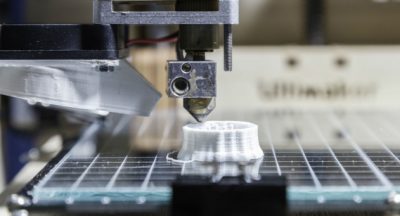
WHITEPAPER – Anti-Counterfeiting Measures: RFID is The New Weapon in the Fight Against Counterfeiting
According to recent estimates from the Organization for Economic Co-operation and Development (OECD), counterfeit goods may cost the economy up to $250 billion a year (1). This is a global epidemic to be sure, with several millions of these products being shipped to the United States every year.
Often when we think of counterfeit items, consumer goods such as high-end jewelry or handbags come to mind. Not only does this cost retailers billions of dollars each year, but we as consumers are also at risk. Imagine lacing up your brand new Air Jordan’s before a game only to realize that you paid the top-dollar for knockoffs worth only a fraction of their cost to you. Frustrating to say the least. Maddening if you think about it long enough. How about life-threatening? Probably a bridge too far for a pair of sneakers, but counterfeiting effects industries that can have a direct impact on our health and safety, as well.
In this paper, we’ll highlight some of the major counterfeiting problem areas, particularly in the healthcare and medical industries, and discuss how RFID is gaining popularity as a top anti-counterfeiting measure.
U.S. Customs and Border Protection (CBP) agents seized nearly $80 million in counterfeit pharmaceuticals and personal care products last year (2). In this case, counterfeiting can have life-threatening consequences especially in developing countries that lack the regulatory and policing resources of the United States. For instance, The World Health Organization (WHO) reports that 200,000 people die each year due to ineffective and substandard malaria drugs that don’t clear a patient’s system of the active parasite.
Wealthy countries are also at risk. Although, many counterfeited drugs in North America can be categorized as “lifestyle” drugs such as Viagra, rather than life-saving drugs, some claim that the legitimate supply chain has been compromised. Roger Bate, a resident scholar at the American Enterprise Institute and expert on counterfeit prescription drugs says “You could go into a CVS or a Walgreens to fill your prescription for whatever it may be—it could be for a heart medication, a cancer drug, an antibiotic—and you could be killed by that medicine.”
Related Posts
4 Arrested At Chennai Airport With Gold Worth 30 Lakh In Rectum.
Four people have been arrested at the Chennai International Airport for trying to...
Four-fold rise in cigarette smuggling into India: WHO
Cigarette smuggling into the country increased four-fold (by value) between 2012...
Ringleader of counterfeit goods outfit sentenced to 30 months in prison
A counterfeit goods ringleader has been sentenced to a total of two and a half...
Counterfeit Parts Of Aircraft And Defense Products Could Proliferate Through 3D Printing
3D printing of aircraft and other defense parts certainly transforms the military...




